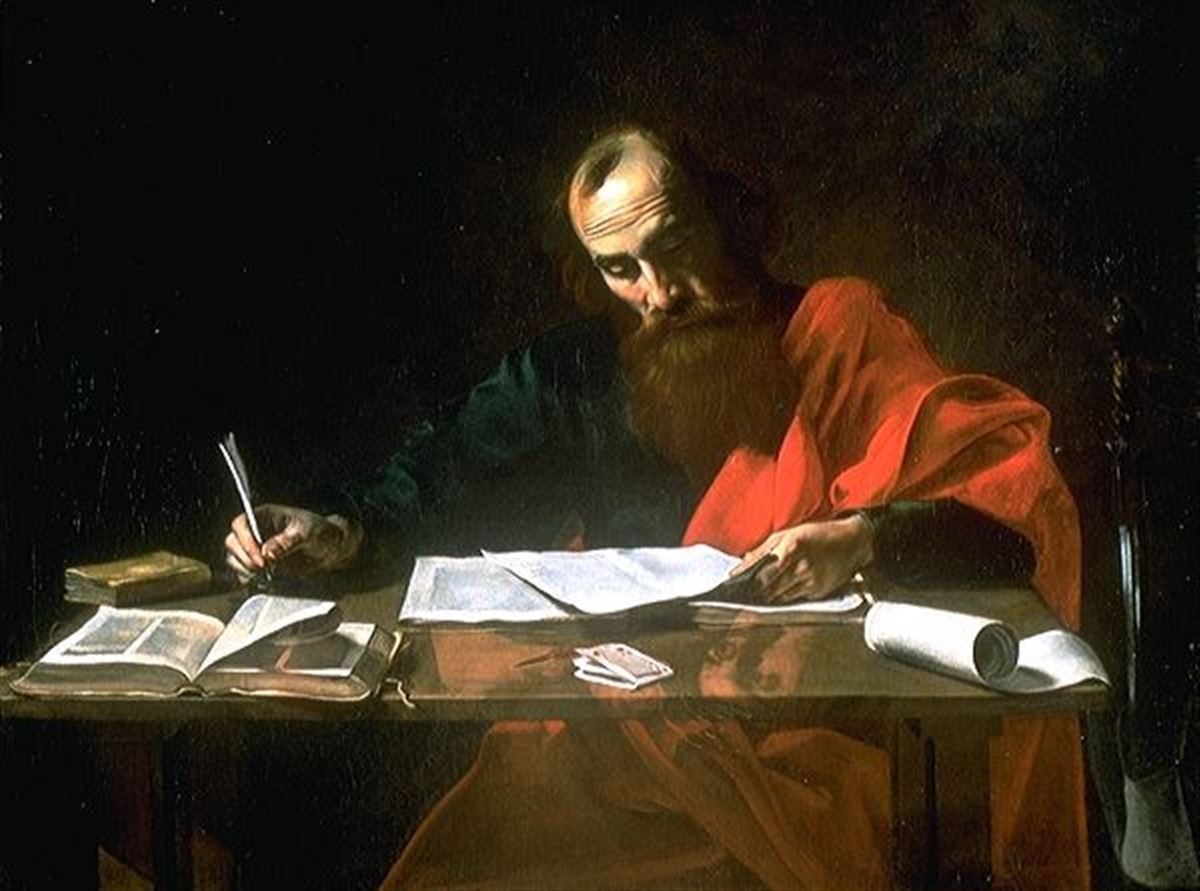Is there a way to love always?
Living in enemy hallways
Don’t know my foes from my friends and
Don’t know my friends anymorePower has several prizes
Jon Guerra, “Citizens”
Handcuffs can come in all sizes
Love has a million disguises
But winning is simply not one
On this day three years ago, I began my first and only position as the senior pastor of a church. That it was April Fool’s Day bore no meaningful significance in my mind. It was merely a coincidence, a mildly funny fact to chuckle at and quickly dismiss. The pastoral call is a powerful and weighty experience – a life-altering confrontation with the prophetic and mysterious will of God. I had directly wrestled with this call for the better part of a year. Certainly, the day I became a senior pastor was far more noteworthy than just the place it happened to fall on a secular calendar. There was no time for frivolous teasing, half-baked pranks, or dumb jokes. This was serious business, wasn’t it?
Less than eighteen months later, I resigned my post. And, in my grief, I could think only one thing: Who was the fool now?
The circumstances of my resignation are a story for another day. Suffice it to say, over the course of those tumultuous eighteen months, I was ridden hard and put away wet, wounded by the slings and arrows of outrageous congregants unable to reconcile their specific, personal preferences for the church with my particular styles of teaching and leadership. Rather than seek common ground, they chose instead to embellish our differences. Rather than meet with me face-to-face, most preferred to whisper behind my back.
The thing I found most tragic, though, was that these stubborn and uncooperative congregants believed – and likely still believe – that they did the right thing, the smart thing. That it was up to their unhappy few to protect the church. As they saw it, the wise thing to do was drive out the one threatening to disrupt their status quo. To simply stand by and allow me to continue in leadership would be the height of foolishness. This was serious business.
The Butt of the Joke
After I capitulated and submitted my resignation, I felt very much the fool. Despite fifteen previous years of work as an associate pastor, I nonetheless stepped into the new position naive, unguarded, and over-trusting. It was foolish to believe the God who had guided me to this post would automatically spare me from any snares or pits that lay ahead, that he would perfectly shield me from the enemies that lay in wait just around the bend. It was foolish to believe my giftedness as a teacher of Scripture was enough to endear me to all, to evoke appreciation and loyalty. And it was foolish not to recognize that congregational unity was something for which we must fight daily, something that is constantly under assault from without and within.
April Fool’s Day, it turns out, was the perfect day for me to begin a work that would ultimately drive me from ministry altogether. I was a fool not to perceive its significance.
For a long time, this sense of foolishness was my shame. I blamed myself for every impasse, every bit of tension, every misunderstanding. I theorized that a more faithful and capable minister would have ascended and soared where I crashed and burned. I considered every cruel and tactless insult that had been hurled at me, trying each one on like a man trying on sport coats in a department store. I considered myself in the mirror and thought, Perhaps my critics are right. Perhaps I am every bit the failure and false teacher they believe me to be. Eventually, I reached the point in which I was questioning my own effectiveness as a minister, concluding to friends and family that God no longer had any use for my limited and flawed pastoral abilities.
Shame is a hell of a thing. Not only do you learn to see yourself as, simultaneously, the sitting duck, the class weakling, the whipping boy, the scapegoat, and the butt of every vindictive joke, but you also come to believe those classifications are fully deserved.
The Foolishness of God
“Consider your own call, brothers and sisters,” writes St. Paul to the Corinthian church. “Not many of you were wise by human standards, not many were powerful, not many were of noble birth. But God chose what is foolish in the world to shame the wise; God chose what is weak in the world to shame the strong; God chose what is low and despised in the world, things that are not, to reduce to nothing things that are, so that no one might boast in the presence of God” (1 Cor. 1:26-29).
After everything fell apart, I felt incredibly foolish. And yet, the more time I spent lamenting my lack of success in ministry, the more I came to see how often God’s Word equates faithfulness not with success, but with failure. From the world’s perspective, to trust in the will of God is to play the fool. When we walk with the Savior through the dumpster fires of our earthbound, devotional pursuits, we begin to grasp the truth that, indeed, the only one’s capable of inheriting this love-starved world are the meek. It is not greater fortune that awaits those who are truly about the Lord’s business, but greater struggle. More often than not, you find yourself alone, bereft of friends and confidants, enveloped by conflict rather than validation. Those who earnestly follow the Spirit’s leading eventually find themselves in the shadows of Gethsemane.
“Do not be astonished, brothers and sisters, that the world hates you,” writes St. John (1 Jn. 3:13), no doubt recalling the Savior’s own prophetic assurance made to him: “Blessed are you when people revile you and persecute you and utter all kinds of evil against you falsely on my account. Rejoice and be glad, for your reward is great in heaven, for in the same way they persecuted the prophets who were before you” (Mt. 5:11-12).
Any careful students of Scripture know this to be true. We like to think more visitors and new buildings and growing programs are proof of the Lord’s blessing. But his Word makes no such assurances. On the contrary, Jesus insists that to follow him is to carry a cross. It is to lay down your life, to relinquish your reputation, to subject yourself to even the most outlandish of accusations, the most grievous of insinuations. Read on and you find that the careers of those who pledged their allegiance to him were marked as much by contention, toil, and peril as by anything our modern world would recognize as “success.”
No Time for Preference
Sadly, you and I live in a time and place in which pastors can become bestselling authors, TV personalities, Instagram influencers, CEOs of globally relevant organizations, or, at the very least, distinguished personages within whatever amount of turf they’ve claimed for themselves. What an exceedingly strange and off-putting view this must be to the saints of old. Looking down on us from on high must be akin to watching a Real Housewives marathon. Again and again, they behold cultural compromise going before us like a banner. Too often, we are Pig Pen reeking of filth, drifting day to day in a cloud of materialistic decadence, shameful perversion, and idolatrous politics.
The lives of the apostles were consumed by trials we can hardly fathom; these blue-collar commoners scraped and scrounged and labored to fan the flame of a fledgling faith. They gave everything to love and to teach love, to endure and call others to endure. What is more, they were always quick to tear out the fast-sprouting weeds of complacency and luxury, admonishing the corrupting influences of wealth, class, and status, and rebuking those who salivated over idols of pleasure, comfort, and convenience.
Look at us now. Today, our houses of worship are themselves worshipped for their opulence and state-of-the-art amenities. Our sermons are vengeful tantrums about groups we hate and self-righteous bellyachings about unfair assaults on our “God-given” rights!
“What rights?” St. Paul asks from between the lines of his letters. “Who has deceived you to believe you deserve anything? What lies have been fed you to think the Church is owed anything but the daily sacrifice of your own life?”
To be a follower of Christ is to waive every claim you have to individual liberty. Sure, Paul leaned on his Roman citizenship, but only so that he might bear witness to the unbridled gospel of Christ from the highest platform possible. The truth is that the gospel – the real gospel – has no time for your preferences. It has no place for your comfort. And despite what some Fox News fabulists may insist, it bears no partiality to your politics. Instead, it calls all of us to join hands beneath one banner and one banner only: the once and future reign of King Jesus.
If you lean on your own understanding and claim your way of seeing or doing things is the only way to serve the King, you’re not a good soldier for Christ. You’re a deserter. You’ve traded a cheap facsimile of church for the true Church.
“Jews demand signs and Greeks desire wisdom,” writes Paul, “but we proclaim Christ crucified, a stumbling-block to Jews and foolishness to Gentiles, but to those who are the called, both Jews and Greeks, Christ the power of God and the wisdom of God. For God’s foolishness is wiser than human wisdom, and God’s weakness is stronger than human strength” (1 Cor. 1:22-25).
Amen. May we cease wanting the new life we’ve been given to be normal. May we stop expecting that the work to which we’ve been called can be comfortable. We are not normal, and this was never meant to be easy. May we accept this, and may we gladly play the fool. I’ve decided that’s OK with me. After all, it is to foolishness that we have been called, and from it we find true significance.












_resources1_16a0854053b_large.jpg)
/cdn.vox-cdn.com/uploads/chorus_asset/file/9160067/Pumpkin_Spice_Latte___2015__4_.jpg)





